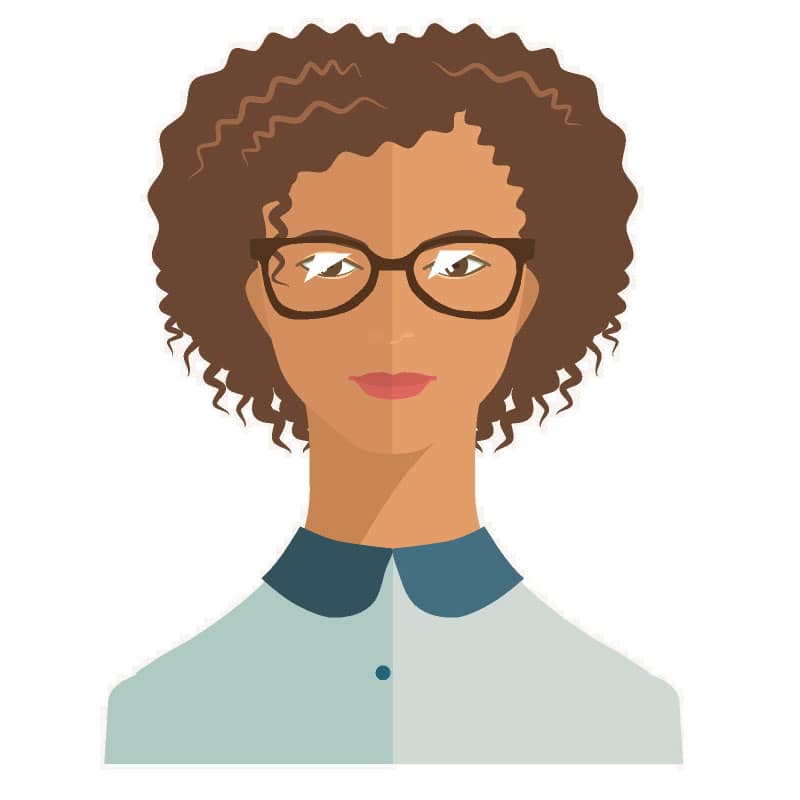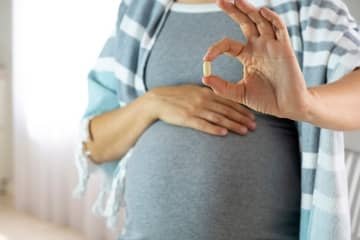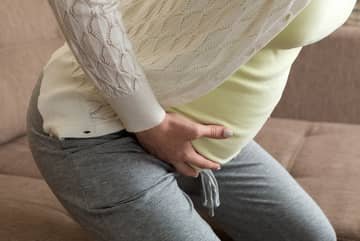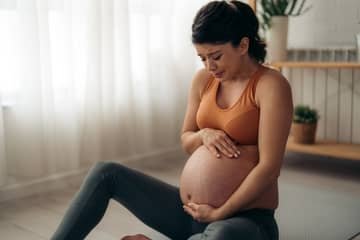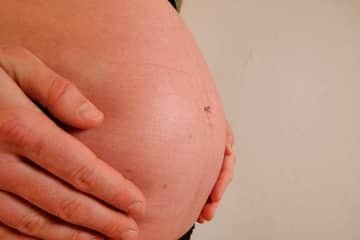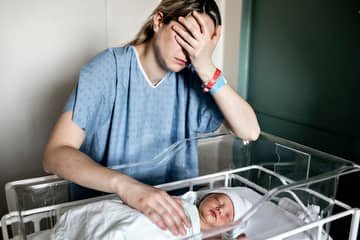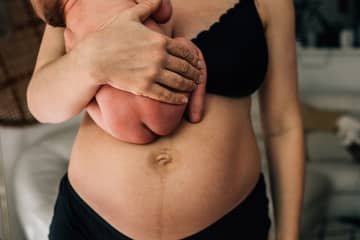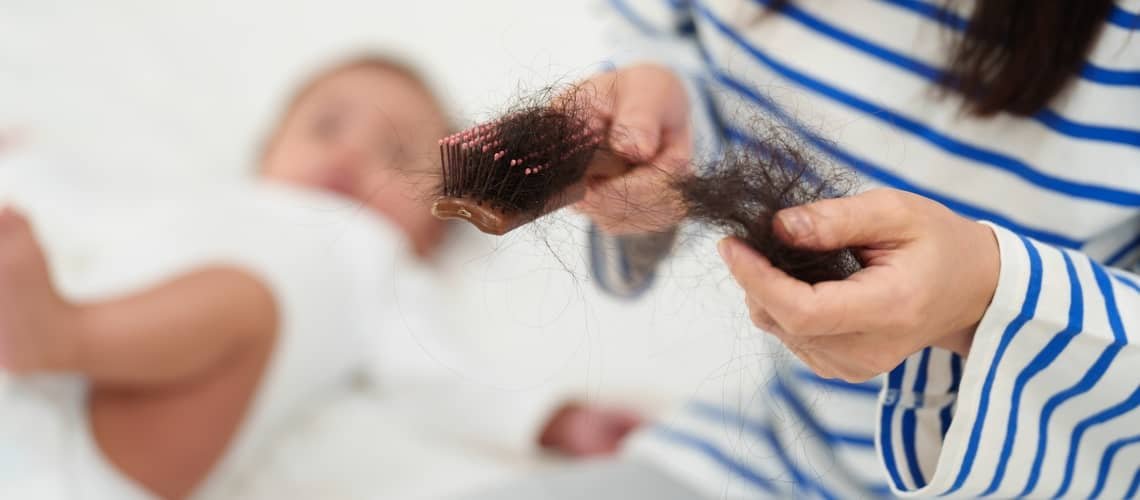
Hair loss after childbirth. What is the cause and what helps?
It is said that if a woman becomes visibly tanned during pregnancy, her skin clears and glows, she will give birth to a boy. In the event that her skin worsens and browning does not occur, she should give birth to a girl. Whether this saying is true or not, in both cases the quality of hair usually improves during pregnancy. They look healthier - they are thicker and shinier. After giving birth, up to 90% of mothers (some sources state a smaller number, only about 50%) experience sudden and significant hair loss about 3 months after giving birth.
A shiny and thick mane was a matter of course for you during pregnancy, after giving birth the situation turned around and you don't know how to deal with the amount of hair that started to fall out. Why do women lose hair after giving birth? Is hair loss after childbirth normal? How to stop it?
Hair loss - the cause
Most women fear weight gain and hair loss during pregnancy and subsequent childbirth. You can prevent excessive weight gain by eating right and exercising, hair loss is caused by hormonal changes, so it is more difficult to fight this problem. Pregnancy, childbirth and breastfeeding represent significant hormonal changes for pregnant women, which affect the quality of hair.
The average woman has about 300,000 hairs on her head and loses 80 to 100 hairs a day, after giving birth this number can increase up to four times. Under normal circumstances, most hair is in the growth (anagen) phase; during pregnancy, due to the influence of estrogen, hair growth is prolonged and hair loss is delayed. The time between childbirth and hair loss corresponds to the length of the resting (telogen) phase of growth, the hair is no longer "trapped" in the growth phase, it temporarily falls out faster and becomes weaker, especially on the top of the head. After giving birth, women can develop corners and small bald spots, more hair appears on the comb and on the floor and pillow.
Hormonal changes are not the only cause of hair loss, lack of sleep, nutritional problems (lack of vitamins and iron) and stress can also contribute.
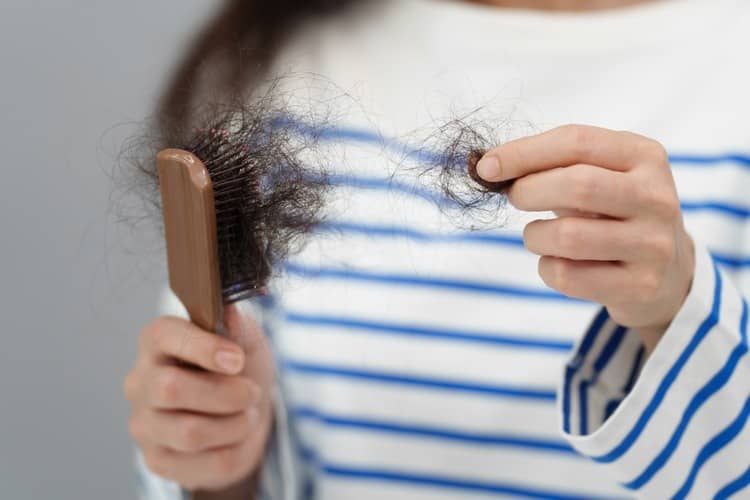
Excessive hair loss in women is only temporary
Fortunately, hair loss and poor quality are only temporary (telogen effluvium). After about 6 to 12 months after childbirth, the hormonal balance will be adjusted (the level of estrogen and other hormones drops to the level before childbirth) and the hair will regain its original quality and density. Excessive hair loss after childbirth is often associated with breastfeeding, but it is certainly not the cause of this problem. Hair can fall out in breastfeeding and non-breastfeeding women. The intensity of shedding and its duration can vary, some women do not even encounter such a problem. However, if it happens, it is only a temporary phenomenon, a process that must happen. With the right care and vitamins, you will achieve that after the phase of extreme hair loss, your new hair will start growing faster and will be in the condition it was before giving birth.
What helps with hair loss?
Hair regrowth with treatment is usually not necessary because postpartum alopecia is only temporary. However, this does not mean that you cannot slow down hair loss. The basis is a suitable diet with a high content of iron and vitamins, you can treat yourself to vitamins for hair loss in the form of nutritional supplements. Among the vitamins and minerals that affect the quality and growth of hair are zinc, iron, selenium, vitamin C and B vitamins - folic acid (B9) and niacin (B3). Treat yourself to plenty of fruits and vegetables, quality meat and proteins. You can get rid of stress with regular exercise. If the weather is nice, you can walk for miles with the stroller, thanks to which you will lose some of the pregnancy weight and put your mind at ease.
Quality shampoo and hair growth guide
Changing your diet and eliminating stress are helpful, but there are more ways to revitalize your crown of beauty. They include proper hair care – shampoo for hair loss after childbirth, suitable conditioner or preparations for hair growth. Be careful, they are not the answer to how to stop postpartum hair loss, as the chance of completely stopping postpartum hair loss is minimal. However, there are options that can help to get sufficient volume and density of hair, preparations that help hair growth and density.
The first step is a proper haircut, thanks to which you can make the hair look thicker and healthier, the second is the use of suitable cosmetics. A favorite choice of many women is the hair growth driver, that is, a hair activator that restores healthy hair growth, regenerates the scalp and increases hair density and quality. You can try, for example Biohar containing the natural substance hyaluronan.
Try to increase the interval of washing your hair, if you wash it every day or every other day, the shedding is more noticeable. Try to wash them twice a week. Limit ironing, curling and blow-drying, instead treat your hair to healing treatments and wraps. Helpful are e.g. coconut, olive, argan or almond oil. Just rub it into your hair and wash it off after a short period of time.
For washing, choose proven shampoos that are intended for falling hair, e.g. caffeine shampoo for women or Revalid shampoo. The reviews are positive in both cases, as customers say, they are effective with regular use.
Use a thin comb for combing, rather avoid complicated hairstyles and braids, temporarily forget about dyeing, which weakens the hair. If you don't want to give it up, then choose from colors that are made on a natural basis.

Herbs and eggs against hair loss
If you prefer health from nature, you can use horsetail, nettle tea, sage decoction or apple cider vinegar for your hair. A good home helper is ginger, which helps against hair loss in the form of tea, you can also apply it directly to the hair. Substances capable of regenerating hair follicles are contained in pumpkin oil, its internal use is recommended. You can also try an egg yolk mask (mix one egg yolk with a spoonful of castor oil, you can also add a spoonful of rum), which you leave on your head for at least an hour, but also all night.
When to see a doctor?
Extreme hair loss can frighten women after giving birth, if the hair is still falling a year after giving birth, it is best to consult a dermatologist or an endocrinologist. There can be more causes of hair loss besides childbirth. Anemia (anemia) or improper function of the thyroid gland.
Hair loss after childbirth - experience
Women have a lot of experience with hair loss after giving birth. As stated in the discussions, the problem started around 3-4. months after giving birth. Since these are hormonal changes, shedding cannot be completely prevented, but it can be limited. Moms advise to cut hair by at least a few centimeters, take Panthenol tablets, Methionine, B-Komplex or zinc. Several women recommend Revalid shampoo. They emphasize that this is only a temporary condition and that you have to endure, and in case of extreme shedding, they recommend going to a dermatologist.
The most frequent questions - FAQ
What helps hair growth and density? How to stop hair loss after childbirth? When should you go to the doctor? If you did not learn everything you needed in the article, write to us in the comments. We would be happy if you share your experiences with this problem and the advice and inspiration that helped you with hair loss.
When will postpartum hair loss return to normal?
Does breastfeeding cause hair loss?
Does nettle shampoo have an effect on hair loss?
Pridať komentár
